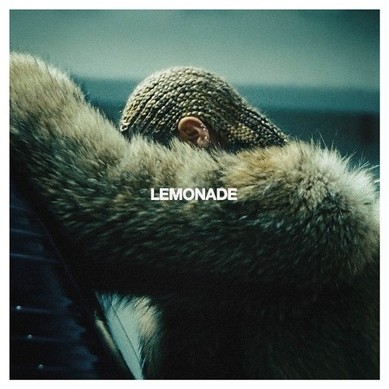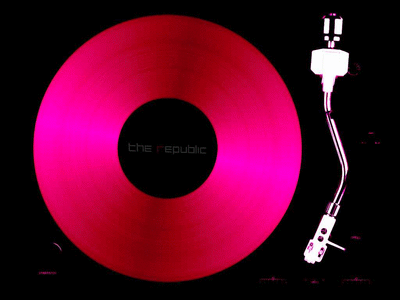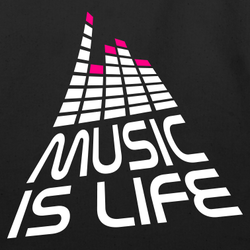
Favorites: Pray You Catch Me, Daddy Lessons, Sandcastles, Freedom
Dislikes: 6 Inch, Sorry, All Night
Overall: Though a little inconsistent and melodically dry, it's her most emotive work and first fable
When Beyoncé surprise-released a self-titled record in 2013, it was praised for allegedly being raw, philosophical and individually ground-breaking. Some people called it her Thriller (Michael Jackson's iconic album, of course). I shook my head and rolled my eyes at these adjectives and notions; it was like I was the only one who could tell the purse was knockoff Versace. With popular music, all you have to do is put explicit sexuality and language over tunes that wouldn't normally be considered radio-friendly and voila! False sense of authenticity and innovation. Luckily for Bey, she got 1,000 additional bonus points because the project came unannounced and she hadn't sung about sperm, surfboarding, or (vicariously) used the word "feminist" yet (it's fascinating how an album that features a rap verse likening violence to sexual performance and lyrics such as "I did this all for you boy, just come my way...I just want to be the girl you like" was called her most feminist one, but okay). Credit was given when it wasn't due. She hadn't truly challenged herself, taking a textbook route to liven things up. "Oh, but all the themes!" You mean the conflicting assortment of concepts that were underdeveloped because the writing and organization had holes? "Oh, but the music is so different!" It is on every record (something she should get more credit for). "Oh, but she gave us videos with it!" There was a video anthology for 2006's B'Day. After the word-vomit and gothic ratchetry that was BEYONCÉ, my hunger pains for certain things from my fave worsened. I didn't want her to just be known as a great entertainer, but a great artist too. I wanted her to rise to her own occasion and potential. I had developed a wish-list; among my desires was heartfelt, thoughtful lyrics, topic diversity and an all-lady team of producers/writers to really get a female perspective (I remember a behind-the-scenes clip where Pharrell told her she'd free all the women with "Rocket." How in the hell would he know what would free us?). Though February's "Formation" had aspirations of honoring black culture, majority of the lines were irrelevant to that cause and kind of ridiculous. Additionally, the trap beat and throbbing bass triggered my self-titled post-traumatic stress. I tried to hold onto my mild optimism that an upgraded BEYONCÉ was on the horizon for her 6th LP, and that's what we got... legit Versace.
Set on the aphorism of "when life serves you lemons, make lemonade," (as you will hear delivered by Jay-Z's grandmother), Beyoncé presents her first narrative, bringing back warm memories of Destiny's Child's Destiny Fulfilled. Lemonade's trajectory, however, isn't as victorious and joyous. It's an acutely desolate voyage through the experience of infidelity, each song exploring various emotional stages, like unease, paranoia, inferiority, fury and longing. These stages are broken down and expounded on in the partnering mini-film of the same title (aired on HBO on 4/23), where her main character's micro dilemma is used to discuss interrelated macro issues of gender and family, like generational abuse, unfaithfulness and paternal abandonment. Touched on are the sacrifices and compromises women make to be considered more desirable, the bullets they bite (either to survive or retain what society says should be important to them) and how their contributions are often taken for granted and disrespected. This is brought to life by the beautiful and gut-wrenching poetry of young Kenyan-born Somali author Warsan Shire, who became the Young Poet Laureate of London in 2014. The assisting imagery is nothing short of compelling and complex as well. There's a suicide scene with Beyoncé jumping off a rooftop in the first 5 minutes, at the conclusion of the opening track "Pray You Catch Me." Unlike most scenes of this kind, we see every inch of her fall, to the point I turned away because I thought they were going to show the land (she alights in a body of water, transitioning to the next section). I thought "Okay...this is going to be intense." Nature, tribal, African, historical and religious symbols are threads, but references to New Orleans and black southern ethos dominate, much akin to the "Formation" video. The intent to speak specifically to black women and their walk is apparent, but aside from the talent being entirely African-American and female, the emphasis is most pronounced with a Malcolm X speech excerpt ( "The most disrespected...unprotected...neglected person in America is the black woman") and appearances by the mothers of Trayvon Martin, Eric Garner and Michael Brown, who have yet to see justice for the murders of their sons. Many other moments, like cameos by athlete Serena Williams and actresses Zendaya Coleman, Quvenzhané Wallis and Amandla Stenberg--all of whom have faced racially-charged criticism--are more subtle (the common denominator between them may not instantly occur to the mind, for example). Succeeding this sequence is the second-to-last poem. A recipe for lemonade is given and the following is recited: "Grandmother, the alchemist, you spun gold out of this hard life, conjured beauty from the things left behind...discovered the antidote in your own kitchen...you passed these instructions down to your daughter, who then passed it down to her daughter." It's striking commentary: black women come out of the womb cursed to a life of lemons, left-overs and scraps barely suitable to be called such, but something's missing if this is the thesis of which this entire project is laid (after all, there is no song called "Lemonade").


 RSS Feed
RSS Feed